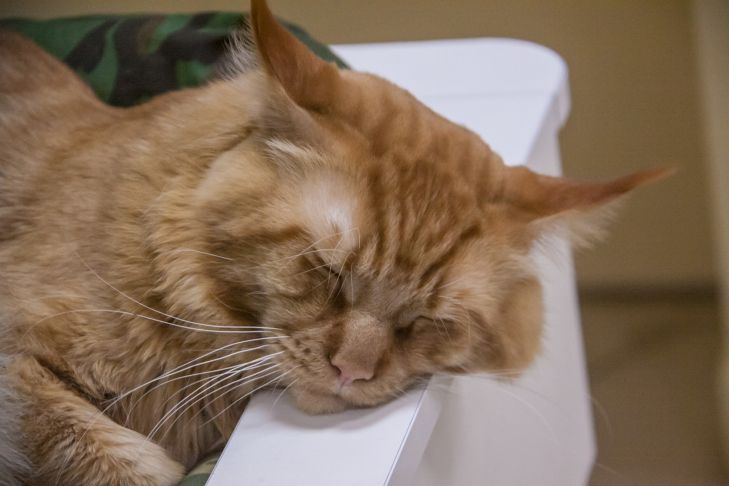Signs of aging in cats: important to know
Sometimes it can be difficult to tell if a cat is aging.
Some signs may indicate this period in your pet.
How to tell if your cat is getting old
Your cat may be getting older if your cat needs more time to sleep and rest.
If a cat sleeps for more than 16 hours, this is a sign of either old age or poor health.
Older pets also have a harder time waking up due to poor hearing.

Older cats are less active and mobile than young cats. It is more difficult for them to walk, run, go down and up stairs.
Dental problems can also be a sign of an aging cat.
Older cats often experience tartar, caries, and tooth loss.
If you observe health problems in your pet or changes in behavior, this is a reason to seek help from a veterinarian.
Sore gums and teeth sometimes cause older cats to refuse to eat or chew on one side of their mouth.
Older cats may also eat more or less than usual.
Older cats often lose hearing or vision.
It can be difficult to notice, so it is best to check your health with a doctor regularly.
What to do if your cat is getting old
As your cat ages, it is important to monitor your pet's health.
To do this, go to the veterinarian at least 1-2 times and get tested.
Make sure your cat is safe and comfortable in your home.
Remove slippery floors with rugs and use coasters for stairs and sofas.
Remove items that are unsafe for cats: anything sharp, toxic houseplants, wires.
Monitor your older cat's diet. Buy special food for your elderly pet.
Previously, we told you how to understand that your cat is sick.

